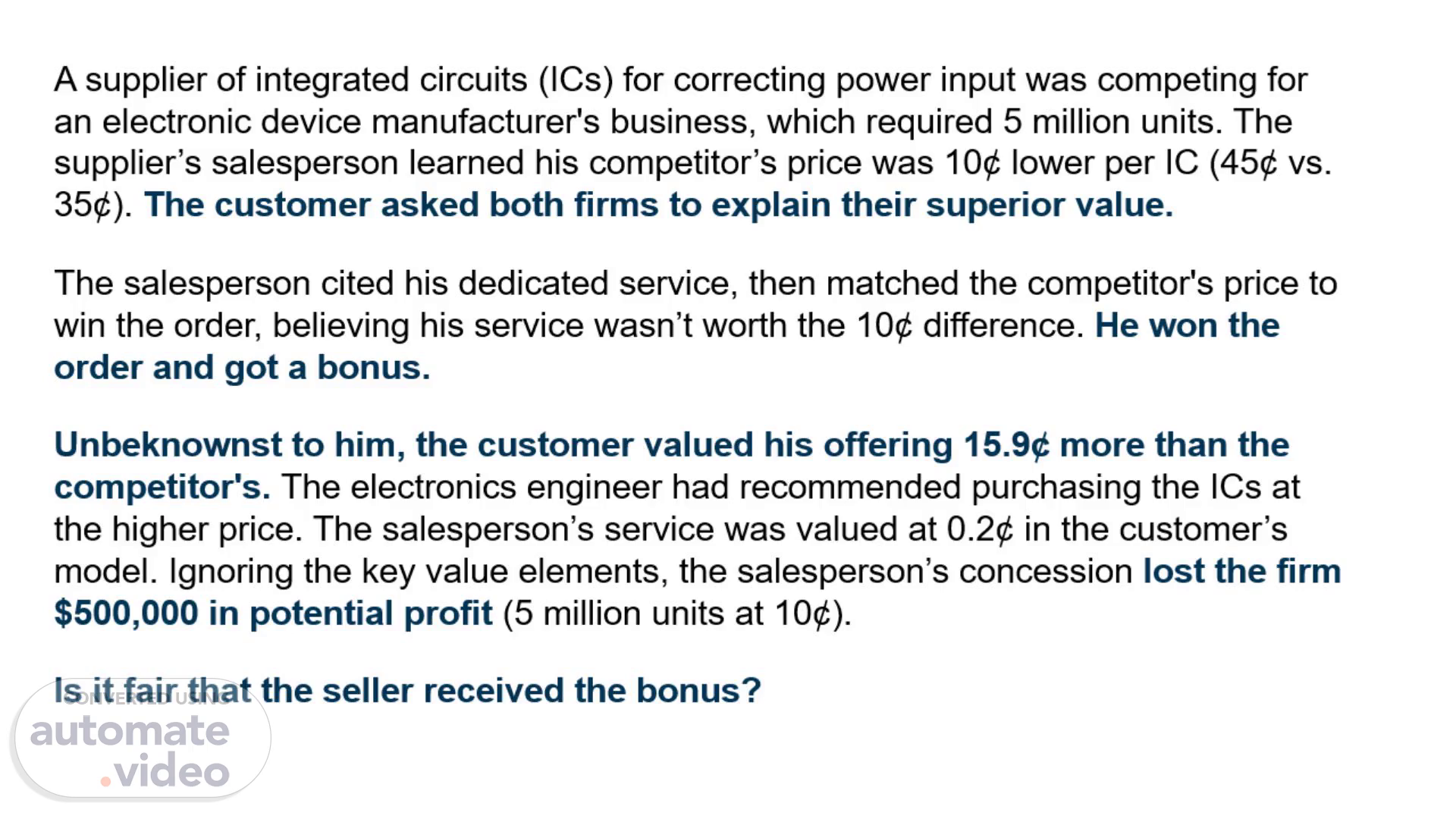Scene 1 (0s)
[Audio] A supplier of integrated circuits (ICs) for correcting power input was competing for an electronic device manufacturer's business, which required 5 million units. The supplier’s salesperson learned his competitor’s price was 10¢ lower per IC (45¢ against 35¢). The customer asked both firms to explain their superior value. The salesperson cited his dedicated service, then matched the competitor's price to win the order, believing his service wasn’t worth the 10¢ difference. He won the order and got a bonus. Unbeknownst to him, the customer valued his offering 15.9¢ more than the competitor's. The electronics engineer had recommended purchasing the ICs at the higher price. The salesperson’s service was valued at 0.2¢ in the customer’s model. Ignoring the key value elements, the salesperson’s concession lost the firm $500000 in potential profit (5 million units at 10¢). Is it fair that the seller received the bonus? Although many supplier firm managers tout the value their market offerings provide customers, those managers have little to say when pressed for specifics on what their market offerings are worth to customers. One firm's stationery and business cards boast: "Delivering Superior Value with Alpha and Beta Brands."' Yet, when senior management was asked what actual assessments had been done to understand the value of their firm's offerings, they answered that the firm had not done any. Perhaps the firm was delivering superior value. What is more in doubt is whether the firm was receiving an equitable return, or if it was simply giving value away. Because a large percentage of the typical firm's revenues go to pay for goods and services it acquires from suppliers, firms increasingly focus on their purchasing practices to improve profitability. Widespread quality management in production and greater availability of comparable market offerings from international sources have led firms to pressure their suppliers to reduce prices and provide discounts. As a result, suppliers in many industries find that, although their sales revenues are growing, it is often at the expense of profitability. To persuade customer managers to focus on total costs rather than on acquisition price, suppliers must have an accurate understanding of what the customer firm values and would value..
